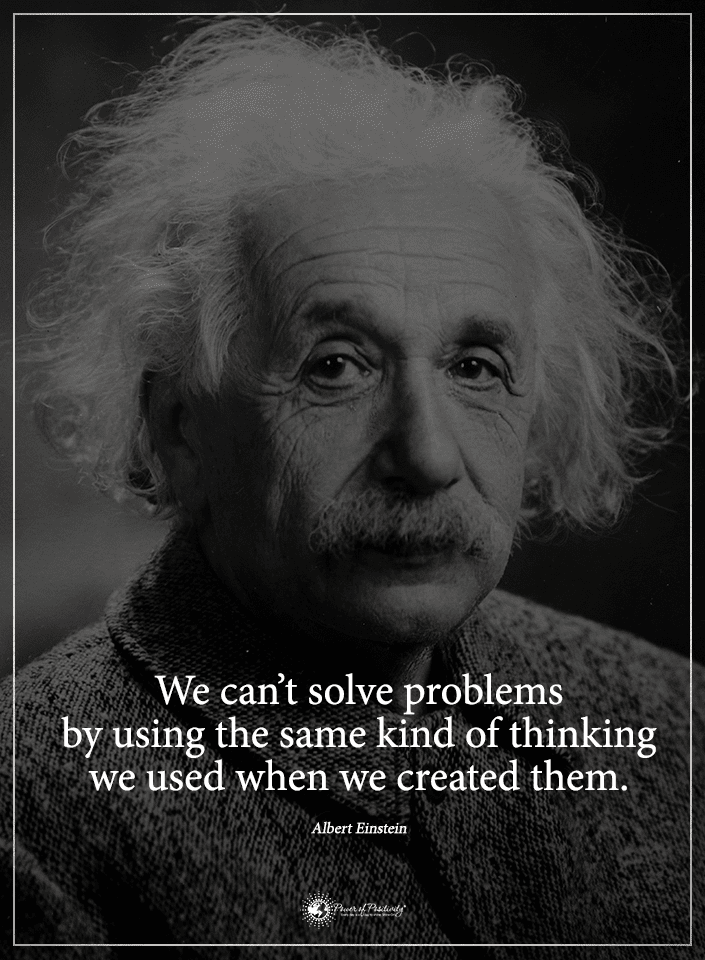Life often turns out to be much more complicated than we anticipate (Who knew?!). To illustrate the very real dilemma of “serving versus fixing” that many people face, let’s use an example: the challenges of being a parent. Many well-intended and loving parents try to raise their kids to the best of their ability – often making serious sacrifices to do so. Despite love and support, kids – and people in general – will always be susceptible to problems and hardships.
Dr. Rachel Remen, the author of Kitchen Table Wisdom, eloquently explains the difference between service to people and fixing their problems:
“Service rests on the basic premise that the nature of life is sacred, that life is a holy mystery which has an unknown purpose. When we serve, we know that we belong to life and to that purpose … When you fix (problems), you see life as broken. When you serve, you see life whole.”
It is only natural that when a serious problem arises – for example, a substance abuse problem – the parent desperately wants to ease their child’s pain. Does the parent intervene and “fix” the problem? Or do they counsel their child and seek an alternative solution?
As any parent can imagine, this is an exceptionally difficult situation with no easy answer.
The point is this: while not always apparent, how we respond to others in times of crises can help or hurt them, sometimes irreparably. Using the substance abuse example, many parents will give their child money when asked, because who wants to see their own kid penniless?
While certainly understandable, this action is often the wrong one. Why? Because it doesn’t do anything to help resolve the underlying problem: substance abuse.
Now, that same parent who suggests treatment options, sets boundaries for behavior, and provides limited assistance is a different story. The parent is serving their child’s underlying needs and encouraging independence.
4 Other Reasons to Avoid “Fixing” Problems
“Those who have the greatest need to tell others what to do have the least faith in themselves.” ~ Paul Ferrini
Aside from encouraging an independent and healthy life, serving the needs of others as opposed to fixing problems also provides other benefits. With this in mind, here are four other reasons to avoid fixing the problems of others:
1. People are inherently resourceful and resilient
This first problem is one that many of us face: underestimating the resilience and resourcefulness of others. What makes this one particularly tricky is that we are often personally guilty of the same. We are gifted with much more resourcefulness and resiliency than we think.
When we allow society – teachers, ministers, counselors, politicians, etc. – to make our choices “for” us, we give away an extraordinary amount of personal power. It is much wiser to invest some of this faith in our own capabilities, and to encourage others to do the same.
2. Serving promotes growth, fixing problems hinders it
We are all well aware of the quote “The road to nowhere is paved with good intentions.” This quote applies to all of us, and is worth keeping in mind when someone seems to be in need.
Good intentions do not solve problems. Good intentions do not make someone a better, stronger, smarter person. Likewise, fixing problems doesn’t do any of these things either. On the other hand, discovering and implementing creative ways to be of service to someone (which is often dependent upon the need) does all of these things.
3. We don’t know what’s best
Put directly, we often don’t know what is needed to solve someone else’s problems. Some of us certainly like to think we do, but unless we’re a subject matter expert, prescribing a solution based on how we think a highly-individualistic problem should be solved is nothing short of misplaced ignorance.
Going back to the previous example, can you imagine just how many different, conflicting pieces of advice that parent would receive? Most likely, the person dishing out this advice isn’t a substance abuse counselor or some other expert – so how would they know? Placing too much faith in the wisdom of one’s inner circle is typically unwise.
4. Fixing problems often does little to no good
Confucius is credited with saying “Give a man a fish, and you feed him for a day. Teach a man to fish, and you’ve fed him for a lifetime.” Fixing problems can certainly be seen as giving someone a fish. While one may feel good about handing some hungry man a fish, it does nothing to solve the underlying issue.
The point: it is much more difficult to find permanent solutions to problems. Doing so requires much more time and effort than we’d like, especially in a society obsessed with instant gratification. Even if we can’t serve every person and solve every problem, we can – at the very least – abstain from habitually fixing the lives of others.
https://youtu.be/FOfljJhqnTo

















